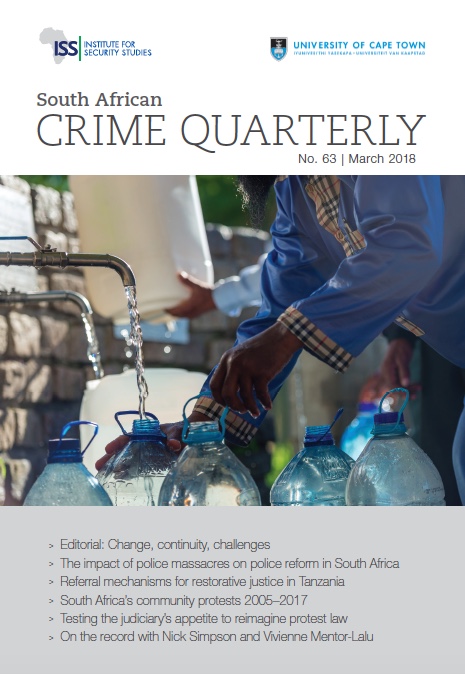Learning from contemporary examples in Africa: Referral mechanisms for restorative justice in Tanzania
DOI:
https://doi.org/10.17159/2413-3108/2018/i63a4368Abstract
Tanzania is one of the jurisdictions in Africa that follow an adversarial criminal justice system. Despite a number of problems associated with the fact that the criminal justice system over-utilises imprisonment, there is still a lack of diversionary measures to complement the system. This article investigates restorative justice as a complementary system to the Tanzanian criminal justice system, arguing that the law, including the constitution of the country, favours the application of restorative interventions. Invoking restorative justice mechanisms can, inter alia, relieve over-laden courts from the backlog of minor cases, and can help the government salvage funds by reducing the number of incarcerated offenders. It is further argued that restorative justice approaches that have been articulated in some juvenile justice systems in Africa can be adapted to suit the Tanzanian restorative approach for child and adult offenders.
Downloads
Downloads
Published
Issue
Section
License
Copyright (c) 2018 Author and Institute for Security Studies/University of Cape Town

This work is licensed under a Creative Commons Attribution 4.0 International License.
SACQ is licenced under a creative commons licence (CC BY) that allows others to distribute, remix, tweak, and build upon your work, even commercially, as long a they give appropriate credit, provide a link to the license, and indicate if changes were made. They may do so in any reasonable manner, but not in any way that suggests the licensor endorses you or your use.
Copyright for articles published is vested equally between the author/s, the Institute for Security Studies and the Centre of Criminology (UCT).



.png)